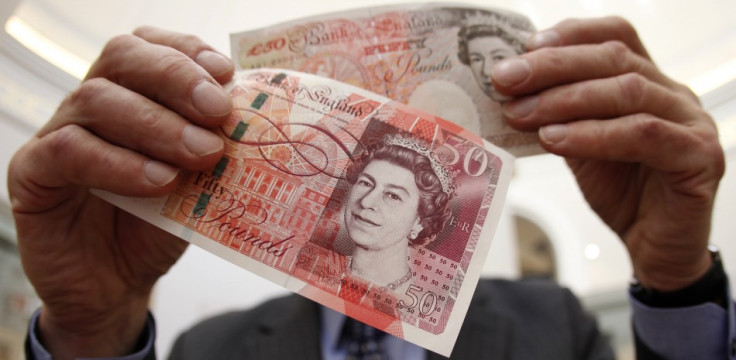FX Focus: Pound nears 31-year low versus dollar but recovers against euro
Pound loses ground against major currency crosses after Prime Minister Theresa May announces Brexit talks will formally begin by March.

The pound lost ground against major currency crosses on Monday (3 October), nearing a 31-year low versus the greenback, after UK's Prime Minister Theresa May said her government would trigger Article 50, the prelude to British exit talks from the European Union, by the end of March 2017.
Addressing the Conservative Party conference on Sunday (2 October), May also said the government would introduce a Great Repeal Bill. The legislation would enshrine all EU law into UK law, while also scrapping the 1972 European Communities Act (ECA).
The move would mean the Great Repeal Bill would come into force as soon as the UK splits from the EU, allowing MPs to amend, cut and build on existing laws set down by Brussels. It will also remove the superiority of EU law over UK law.
At 11:37am BST, the pound was down 0.72% versus the dollar, changing hands at $1.2879, extending the losses that surfaced in early trading in Asia. The British currency also took a tumble versus the euro before recovering to €1.1458, still down 0.78% intraday. However, the pound held ground above post-EU referendum lows versus both currencies.
Analysts at Sucden Financial said following May's announcement, upcoming UK economic data will be very important for forex market sentiment this week, with the construction and services purchasing managers' indices due over the following two trading sessions.
"The pound may have declined but is holding above post-referendum lows. The data will be important in shaping expectations surrounding the November Bank of England rate decision."
Kit Juckes, head of forex at Societe Generale and IBTimes UK columnist, expressed surprise that the pound did not bounce back from its fall in the immediate hours of PM May's statement. "However, I am not surprised enough to prevent me being bearish long-term. To be fair, absolutely nobody is going to change their view of the UK economy, the pound or the wider implications of Brexit until there are mountains of evidence about the economic impact."
Away from the pound, the euro remained relatively flat, changing hands at JPY113.89 and $1.1239, down 0.03% and up 0.04% versus the yen and dollar respectively. Meanwhile, the dollar extended its losses in Asia well into the European session, shedding 0.08%, 0,03% and 0.44% versus the Swiss franc, yen and Canadian dollar, changing hands at CHF0.9706, JPY101.32 and CAD$1.3069 respectively.
FXTM chief market strategist Hussein Sayed said the coming week is likely to be crucial for the greenback, with focus shifting from Trump-Clinton sparring of the previous week to hard economic data.
"Friday's non-farm payrolls report will be a key indicator to shape expectations for the US Federal Reserves's December meeting. The economy is expected to add 170,000 jobs in September, compared with 151,000 in August, meanwhile unemployment rate is forecast to hold steady at 4.9%.
"Average earnings, predicted to rise to 0.3% in September from 0.1% in August, will share the same importance of the headline figure, as it might suggest that the American labour market has finally started to tighten and is about time to start feeding inflation," Sayed said.
© Copyright IBTimes 2025. All rights reserved.




















